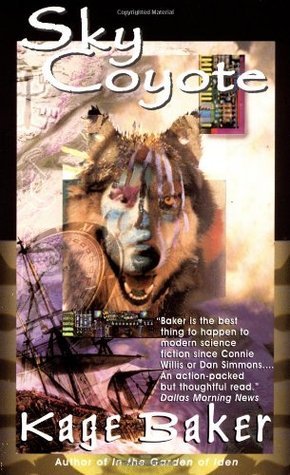What do you think?
Rate this book


292 pages, Mass Market Paperback
First published January 1, 1999
"You know why I've survived in this job, year after year, lousy assignment after lousy assignment, with no counseling whatsoever? Because I have a keen appreciation of the ludicrous.
Also because I have no choice."
Sepawit, sluicing off ash with a basket of water, greeted me cheerfully.The whole plot is as bawdy and crazy as many of the coyote stories I've read, including an interlude that's basically one long (wince) penis joke.
"Hey, Sky Coyote, You should have been here this morning! We had quite a shaker!"
"Hell of a quake," agreed Nutku, beating his best bearskin robe until the dust flew. [...]
I tried to remember what I'd been about to say.
"I know. Khutash is very angry. She found out about Sun's white men last night," I told them. They looked surprised.
"Khutash is angry? Is that what makes earthquakes?" Sepawit blinked. "Well, I guess You'd know, but we always thought it was a natural phenomenon."
"What?" Oh, boy, I wasn't at my quick-witted best today.
"We always thought it was the World Snakes down there under the crust of the earth, the ones who hold everything up? We thought they just get tired every now and then and bump into one another,"
Nutku explained. "The astrologer-priest says they push the mountains up a little higher every year."
"Oh," I said.
"Happy endings aren't so easy to come by when you're an immortal, because nothing ever quite seems to end. Well, things do; we don't, which is part of the problem."